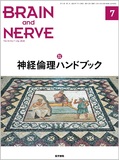Japanese
English
増大特集 神経倫理ハンドブック
脳神経疾患の終末期医療と倫理・法律
End-of-Life Medical Care for Cranial Nerve Diseases from Ethical and Legal Perspective
稲葉 一人
1
Kazuto Inaba
1
1中京大学法務総合教育研究機構
1Chukyo University
キーワード:
人生の最終段階
,
法と倫理の関係
,
ガイドラインの構造
,
告知
,
人工呼吸器の取外し
,
end-of-life
,
relation between law and ethics
,
structure of the guideline
,
informed consent
,
removal of the ventilator
Keyword:
人生の最終段階
,
法と倫理の関係
,
ガイドラインの構造
,
告知
,
人工呼吸器の取外し
,
end-of-life
,
relation between law and ethics
,
structure of the guideline
,
informed consent
,
removal of the ventilator
pp.689-700
発行日 2020年7月1日
Published Date 2020/7/1
DOI https://doi.org/10.11477/mf.1416201586
- 有料閲覧
- Abstract 文献概要
- 1ページ目 Look Inside
- 参考文献 Reference
法の基礎的知識を示したうえで,倫理との関係を検討した。そのうえで,終末期,さらに神経難病に関する法について,具体的な事例を踏まえて解説した。わが国で大きな意味を持つ,人生の最終段階のガイドラインや,認知症ガイドラインについて構造を分析した。そのうえで,特に,告知(インフォームドコンセント)の問題,人工呼吸器の取外しについて検討を加えた。
Abstract
After showing the basic knowledge of law, I examined the relation ship between law and ethics. Subsequently, I explained a related law about the end-of-life stage and neurological intractable diseases based on specific cases. I analyzed the structure of the guidelines for end-of-life and dementia guidelines, which have great significance in Japan. In addition, the issue of notification (informed consent) and removal of the ventilator were examined.

Copyright © 2020, Igaku-Shoin Ltd. All rights reserved.


